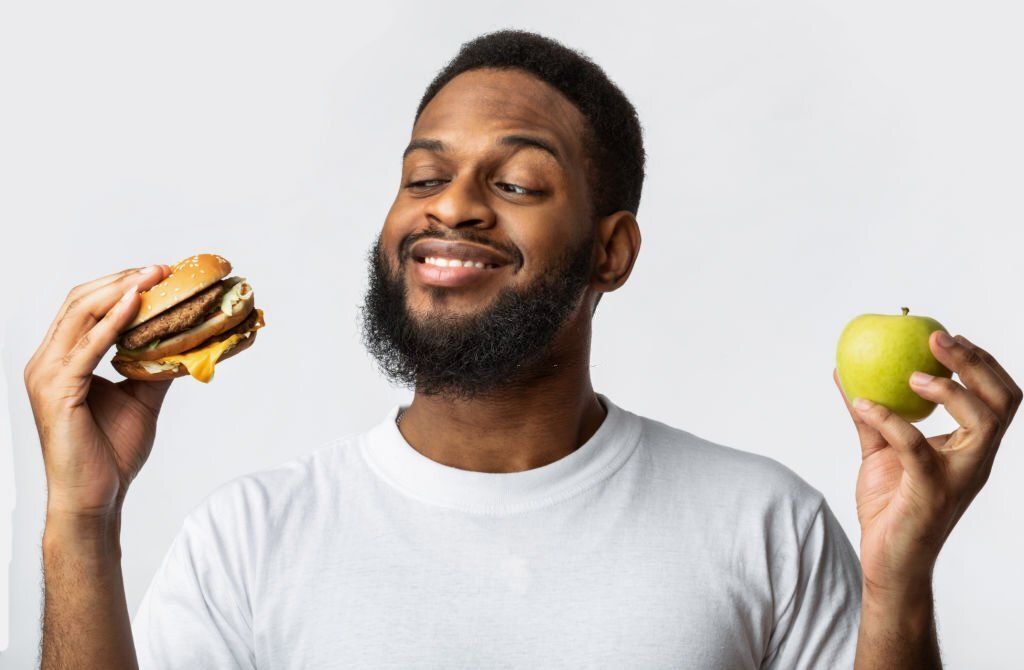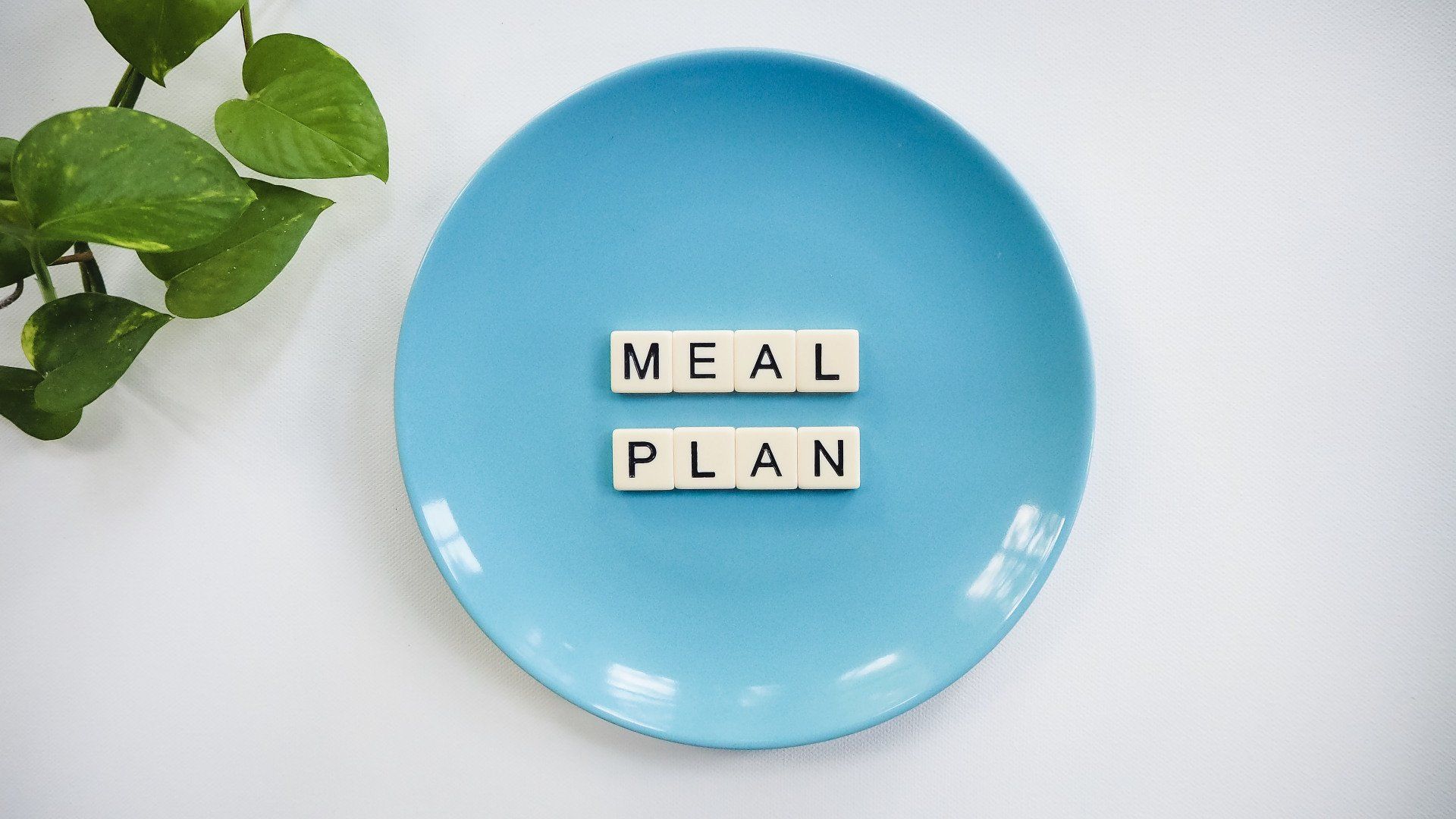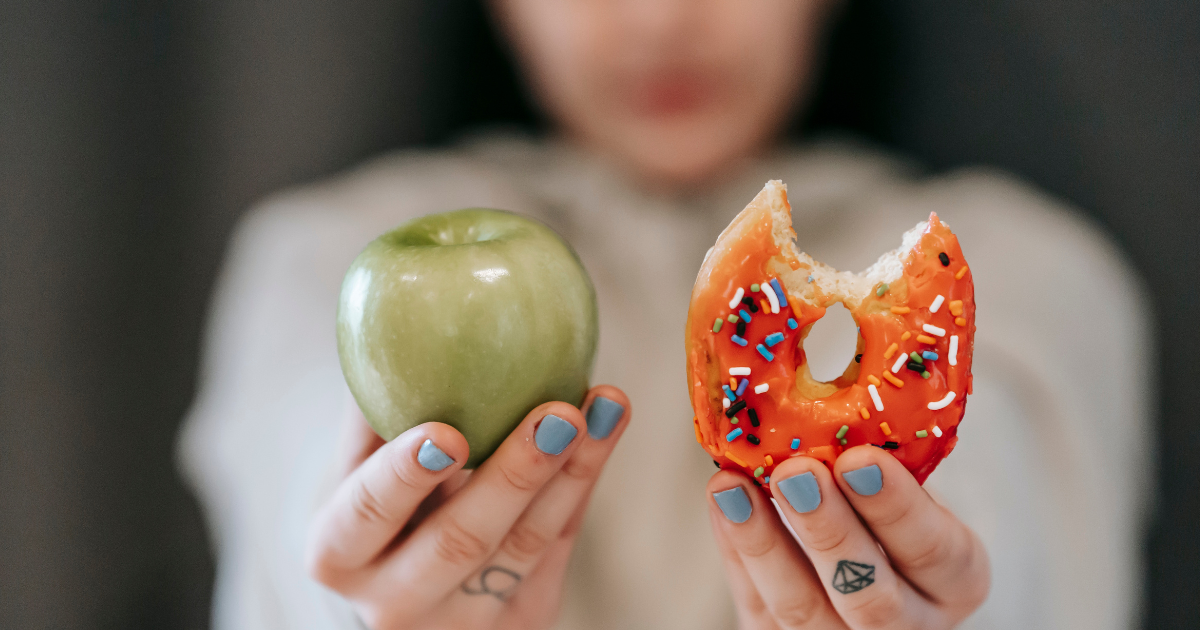
How To Choose The Best Weight Loss Program For Your Needs
Here’s the single most important criteria for choosing a diet plan for weight loss: How effective it is in reducing your weight in the long term. Not how much weight you can lose in a week, a month or even six months. A year or more.
Would you buy a bike that doesn’t pedal after a couple of weeks? A watch that tells the wrong time after a few months? A house that collapses in half a year?
If you wouldn’t buy
anything with a short shelf life why would you do it with a weight loss program?
Unfortunately, you don't have many options when it comes to weight loss systems with proven records of long-term success. In fact, there are none. Every systematic review of dieting shows the same thing: initial weight loss, followed by weight gain.
In the latest, most
respected, comprehensive, peer-reviewed study ever done on diets (published in the British Medical Journal), scientists compared the long-term effects of 14 popular diet plans for weight loss like Weight Watchers, Jenny Craig, Mediterranean, Dash, Atkins, Zone, Paleo, Volumetrics, Ornish, and other diets.
Here’s a verbatim quote from their systematic review and meta-analysis:
“Moderate certainty evidence shows that most macronutrient diets, over six months, result in modest weight loss and substantial improvements in cardiovascular risk factors, particularly blood pressure. At 12 months the effects on weight reduction and improvements in cardiovascular risk factors largely disappear.”
In plain english, the scientists are saying that diets work in the short term but not in the long term.
But surely there were differences between diets, no? How could a medically-based weight loss system like the DASH diet do just as badly, long-term, as a commercial program like Weight Watchers? Surely there were differences in outcomes
between diets?
There weren’t. Here’s what the study said:
“Differences between diets are, however, generally trivial to small, implying that people can choose the diet they prefer from among many of the available diets without concern about the magnitude of benefits.”
In other words, pick any diet you want--you’re going to get the same results: Zero weight loss by the end of a year.

Why Don’t Diets Work?
While weight loss studies show diets don’t work in the long term, they never actually tell us why. For that we have to turn to scientists that study the biological changes that dieting brings about. For now, we can reduce the “why” to this: Dieting sets off a cascade of physiological and psychological responses that oppose the perceived deprivation.
There is a consensus among scientists the dieting triggers a fight or flight response in five different ways:
- Dieting increases production of hunger hormones
- Decreases the production of satiety hormones
- Slows down metabolism (by up to 15%)
- Compels you to overeat (known as “The Insurance Hypothesis”)
- Creates untenable mental health issues.
Click here for a much lengthier discussion on why diets don’t work (sourced with academic citations).

If Diets Don’t Work What Will? Changing Your Eating Habits
There are millions of people who’ve lost weight and kept it off over the years. If diets don't work then how did they do it? By following the dictates of science: Concentrating on health, not weight.
That means improving sleep, lowering stress, deepening social connections, strengthening mental health, getting enough exercise, having access to basic resources (shelter, income, healthy foods) and correcting dysfunctional eating patterns.
Let’s concentrate on that last piece, as it’s the most relevant to our cause: Dysfunctional eating patterns.
It’s a given that people who’ve lost weight permanently make different food choices than people who haven’t been able to. But research has shown that it isn’t just what they eat but how they eat.
Healthy weight people don’t do what overweight people do: Eat fast, serve themselves gigantic portions, eat while distracted (watching tv, scrolling through smartphones), serve food on big plates, leave snacks on the counter where they can see them, eat late at night, stress eat, binge, overeat, and more.
Instead, they’ve adapted to more positive eating behaviors. Behaviors that not only reverse the habits just enumerated, but weaken cravings for fattening food, increase cravings for fruits and vegetables, and break addictions to sugar and binging/overeating patterns.
None of these things require a diet plan to lose weight, and that’s why they’ve slimmed down permanently. Change your habits, change your lifestyle and ultimately, you change your weight.

The Only Weight Loss Systems With Proven Long-Term Outcomes
There are only two “programs” with enough science behind them to say they produce positive, long-term outcomes--Neuroslim and Intuitive Eating.
We put “programs” in quotes because it’s more accurate to describe them as approaches, or a series of psychological emotional / behavioral steps you can take to improve unhealthy eating patterns, than any kind of program.
Both Neuroslim and Intuitive Eating are remarkably similar. They both assist you in developing healthier eating habits but they take different approaches.
Both have a tremendous body of peer-reviewed research behind them (Neuroslim has over 200 studies backing up its approaches, and
Intuitive Eating has about the same.) Let’s take a brief look at both of them.
Neuroslim
Best described as a comprehensive collection of science-based techniques that help you develop healthier eating habits. These methods stop overeating, reduce hunger, and help you quit sugar, and eat less.
All of
Neuroslim’s techniques are based on papers published by neuroscientists. Like intuitive eating, it does not tell you what to eat or avoid. Instead it concentrates on new, positive, habit formations.
Neuroslim can be accessed in a variety of formats--
book (ebook, paperback, hardback),
audiobook, personal coaching, and a
4-week, web-based class featuring dozens of videos with vivid demonstrations of the science.
Neuroslim isn’t new or revolutionary--it has simply packaged neuroscientific studies in a way that’s easy to follow. It argues that you don't need a diet plan to lose weight. You need a habit plan. Some of the subjects it tackles includes how to quit snacking, how to break addictions to sugar in all its forms (foods, sodas, juices), and painlessly reducing hunger.
Intuitive Eating
Like Neuroslim, Intuitive Eating also has nothing to do dieting. In fact, it is not only anti-diet, it's practically against all intentional weight loss.
Yet, if you follow its principles, you end up losing weight. At its heart, Intuitive Eating is about trusting your body to make food choices that feel good for you, regardless of the effect it has on your weight. By being mindful and paying attention to internal cues you will, over time, eat healthier. With deceptively simple yet powerful proscriptions like “Eat when you're hungry” you end up eating less (over time).
The goal is to stop the cycle of binging and deprivation, as well as heal your relationship with food. Other guidelines include paying attention to fullness, respecting your emotions, making peace with food, challenging the “food police,” respecting fullness, making eating more enjoyable, honoring feelings without using food, respecting your body and honoring your health through gentle nutrition.
Unlike Neuroslim, Intuitive Eating is as much a movement as an approach. There are
dozens of books, though
the original still has sway. You can access it through every conceivable means--books, videos, coaching, etc. Just google something like "Intuitive Eating coaches or classes" and you'll be awash in options.
We
highly recommend
that you check out either Neuroslim or Intuitive Eating. They’re the only two “programs” that will result in permanent weight loss.
Short-Term Weight Loss Is Sometimes Desirable
While the research is clear that none of the commercial diet plans for weight loss work in the long term, they do work in the short-term.
Short-term weight loss is not always a bad thing. If you're a weekend warrior getting ready for a tournament or if you need to be at a certain weight to qualify for an activity or an event, if you've got a big beach vacation planned, if you’re booked to speak in front of big group of people, if you’ve got a high school reunion coming up… these are all understandable reasons for wanting to slim down, even if you know it’s only going to be temporary.
With that goal in mind--short-term weight loss-- we offer our thoughts on…
FREE YOURSELF FROM EATING HABITS THAT CAUSED YOUR WEIGHT GAIN
Join The Only Weight Loss Program That Targets Habits Not Food


How To Choose The Best Traditional Weight Loss Program
In this section we offer an unusually comprehensive guide to choosing the best offline or online weight loss plan for your needs. Given the research proving there is no difference in outcomes between diets, your decision should come down to which weight loss plan best fits your preferences and lifestyle. Here are the kinds of questions you should ask yourself. Just click on the most relevant ones and you'll get all the details.
What’s The Likelihood You’ll Stick With The Diet?
Is It Easy To Comply With If You Go Out To Eat?
How Much Cooking Does It Require?
Does It Address Unhealthy Eating Habits, Not Just Food Choices?
Is The Weight Loss Plan Nutritionally Sound?
Are There Additional Health Benefits?
Is It Good For Couples And Families Or Just Individuals?
Is The Weight Loss Program Medically Sound?
Does It Offer Personal Coaching?
Does It Offer Group Support Through A Community Of Like-Minded Members?
Does It Provide Meal Planning?
Does The Weight Loss Plan Require You To Use An App?
Does The Program Use Information Sources That Appeal To You?
Are The Instructions And Guidelines Easy To Follow?
Does It Specify Portion Sizes (Not Just What To Eat But How Much)?
Questions You Should Ask A Weight Loss Program
Resources

HOW EXPENSIVE IS YOUR DIET PLAN TO LOSE WEIGHT?
Should you pay for a weight loss system? Here are some things to consider:
What's Your Motivation?
If you're highly motivated to lose weight and confident in your ability to do so, then paying for a top weight loss program may not be necessary. On the other hand, if you lack self-confidence or are easily discouraged, paying for a diet plan to lose weight may give you the boost you need to succeed.
What's the Cost?
The cost of these diet plans for weight loss can vary widely. Some programs may seem expensive at first glance, but when you factor in all of the services and features they offer, they may actually be quite reasonable. Conversely, some programs may seem cheap at first glance but end up being quite costly once you add up the cost of all the extras. When considering the cost of a program, be sure to factor in the cost of any required supplements or equipment, as well as the monthly or annual subscription fee.
Can You Afford It?
If you sign up for a program that you can't afford, you're likely to drop out before seeing any results. There's no shame in admitting that a particular program is out of your budget; there are plenty of other options available.
What's Included?
Some online weight loss programs may seem expensive at first glance, but when you factor in all of the services and features they offer, they may actually be quite reasonable. Conversely, some programs may seem cheap at first glance but end up being quite costly once you add up the cost of all the extras. Be sure to look at what's included in the price of the program before making your decision.
Are There Any Guarantees?
Some programs offer money-back guarantees if you're not satisfied with their results. This is usually a good sign that the company believes in their product and is willing to stand behind it. However, it's important to read the fine print carefully before signing up for any program; there may be certain conditions that must be met in order for you to qualify for a refund.

WHAT’S THE LIKELIHOOD YOU’LL STICK WITH THE WEIGHT LOSS SYSTEM?
There are a lot of diet plans to lose weight. Some are more restrictive than others. Some are easier to follow than others. And some are more adaptable to your personal tastes and preferences than others. So, how do you choose the right weight loss plan for you? By finding one that is flexible, easy to follow, and adaptable to your needs. Here's why that's so important.
When it comes to weight loss, there is no one-size-fits-all approach. What works for one person might not work for another. That's why it's so important to find a weight loss program that is flexible enough to accommodate your needs. Otherwise, you're likely to give up on the program before you see any results.
A flexible weight loss system is one that allows for variations. For example, if you're averse to eating certain foods or want to eat more of certain foods, a flexible program will allow you to make those changes without forcing you to stick to a rigid plan. A flexible program is also easy to adapt to your personal tastes and preferences. If you don't like the food options included in the program, you should be able to swap them out for something else that you do like.
Additionally, a top weight loss program will be easy to follow and won't require hours of meal prep and cooking every day. It should also be designed in a way that makes it easy for you to stay on track, even when life gets busy or hectic. And finally, a good weight loss program will offer support and guidance so that you don't feel like you're going it alone.
Now let’s get more detailed.
Before you decide on a weight loss program you need to find out how restrictive it is. Does it allow for variations? Is it flexible? Is it easy to adapt to your personal tastes and preferences? How much difficulty would you have in getting used to the diet? Are there obstacles such as bland food, a rigid eating schedule and hours-long meal prep? Are there lots of rules? Time frames? Lots of planning and cooking?
If you answered yes to any of these questions, then the diet may be too restrictive for you. Here are some warning signs that your diet is too restrictive:
You're always thinking about food.
If you find yourself constantly thinking about food, it's a sign that your diet is too restrictive. When you're fixated on what you can't have, it's all you can think about. This can lead to feelings of deprivation and bingeing.
You're missing out on important nutrients.
Restrictive diets often lack essential nutrients like vitamins, minerals, and fiber. This can lead to deficiency diseases like scurvy and anemia. It can also make it difficult to get the recommended daily intake of important nutrients.
You're always hungry.
If you find yourself feeling famished all the time, it's a sign that your diet is too restrictive. When you're constantly hungry, it's hard to stick to a diet. This can lead to overeating and weight gain.
You have cravings.
When you deprive yourself of certain foods, it's natural to have cravings for those foods. If you find yourself obsessing over forbidden foods, it's a sign that your diet is too restrictive. Cravings can lead to bingeing and weight gain.
You're tired all the time.
Restrictive diets can cause fatigue due to lack of essential nutrients. If you're constantly tired, it's a sign that your diet is too restrictive. Fatigue can lead to irritability and decreased productivity.
You're always thirsty.
If you find yourself drinking more water than usual, it could be a sign that your diet is too restrictive. When you don't get enough nutrients, your body tries to compensate by retaining water. This can lead to dehydration and weight gain.
You're moody all the time.
If you find yourself feeling moody all the time, it could be a sign that your diet is too restrictive. Mood swings are often caused by low blood sugar levels, which can be a result of not eating enough or not eating the right foods.
The Top Weight Loss Programs You're Most Likely To Stick With
Our survey of 30 health sites reveals the 3 programs you're most likely to comply with in the long run:

DOES YOUR DIET PLAN FOR WEIGHT LOSS OFFER ADDITIONAL HEALTH BENEFITS?
There is no point in losing weight if it impacts your overall health negatively. So before you decide on a weight loss program it might behoove you to find out if there are additional health benefits than just simply losing weight.
The good news is that there are additional health benefits to some of the top weight loss programs. For example, diets low in saturated fat and high in fibre --the kind found in whole grains-- can help to reduce your risk of developing type 2 diabetes. A healthy diet rich in fruits, vegetables, whole grains and low-fat dairy can help to reduce your risk of heart disease by maintaining blood pressure and cholesterol levels. A diet rich in calcium keeps your teeth and bones strong and can help to slow bone loss (osteoporosis) associated with getting older.
However, not all online weight loss programs are created equal. Some programs focus on quick weight loss at the expense of long-term health, which is why it is important to do your research before committing to any one program. Additionally, fad diets or crash diets—any plan that involves severe calorie restriction—can actually lead to gaining back more weight than you lost in the first place. And finally, yo-yo dieting, or going on and off of diets constantly, can be hard on your body and your mood, leading to feelings of frustration and defeat.
If you are thinking about starting a weight loss program online or off, do your research first. Make sure the program you choose is safe and will provide lasting results. And most importantly, remember that slow and steady wins the race—crash diets might give you quick results but they are not sustainable (or healthy!) in the long run.
Top 3 Weight Loss Programs That Offer Additional Health Benefits
These are the top three diets that offer the most health benefits according to our survey of 30 health/medical websites (see our Resources section for a complete listing of the sites).
The Mediterranean diet has been lauded by nutritionists and health experts for its many benefits. This way of eating is based on the traditional cuisines of Greece, Italy and other countries bordering the Mediterranean Sea, and has been shown to help prevent heart disease and stroke.
The foundation of the diet is plant-based foods, such as whole grains, vegetables, legumes, fruits, nuts, seeds, herbs and spices. Fish, seafood, dairy and poultry are included in moderation, while red meat and sweets are eaten only occasionally.
Olive oil is the primary source of added fat in the Mediterranean diet – a good choice since it provides monounsaturated fat, which lowers total cholesterol and low-density lipoprotein (or "bad") cholesterol levels. So go ahead and indulge in that glass of wine with dinner – it's part of a healthy lifestyle.
The DASH diet is a scientifically proven way to lower blood pressure and reduce the risk of heart disease. The diet is based on eating plenty of fresh fruits and vegetables, and choosing lean proteins, low-fat dairy, beans, nuts, and vegetable oils. The DASH diet is low in saturated fat and dietary cholesterol, and is rich in potassium, magnesium, calcium, protein, and fiber. The diet emphasizes fruits, vegetables, and low-fat dairy, and includes whole grains, fish, poultry, and nuts. It limits red meat, sweets, and sugary beverages. This combination of nutrients has been shown to be effective in reducing risk factors for heart disease.
The Mayo Clinic Diet is a comprehensive approach to healthy living that can help you lose weight and keep it off for good. This diet is based on the latest scientific research and is designed to promote lifelong health.
The Mayo Clinic Diet emphasizes fruits, vegetables, and low-fat dairy, as well as whole grains, fish, poultry, and nuts. It limits red meat, sweets, and sugary beverages. These components work together to reduce risk factors for heart disease. The diet is also low in sodium (if following the low-sodium version).
This diet is easy to follow and can be adapted to your individual needs and preferences.

IS YOUR WEIGHT LOSS SYSTEM EASY TO COMPLY WITH IF YOU GO OUT TO EAT?
Many people who are trying to lose weight find that they have the most success when they can stick to their diet and exercise plan at home. But what about when you go out to eat? Is the weight loss program you're considering easy or difficult to maintain if you find yourself at a social event, restaurant or dinner party?
Some weight loss systems are very restrictive, making it difficult to follow the rules outside the home. This can make social situations and dining out a real challenge. Other programs may be more flexible, allowing you to enjoy your favorite foods while still staying on track with your weight loss goals.
Before you choose a weight loss program, it's important to consider how easy it is to follow the rules outside the home. Otherwise, you may find yourself struggling to stick to your diet when you're out and about. After all, what good is a weight loss program if you can only follow it when you're at home by yourself?
Look for a weight loss program that gives you some flexibility. That way, you can still enjoy your social life while also sticking to your health goals. For example, some programs may allow you to splurge on occasion as long as you make up for it later in the week. Others may have specific guidelines for eating out at restaurants. Find a plan that makes sense for your lifestyle and that you feel confident following even when you're away from home.
Not sure where to start? Here are a few tips for finding a weight loss program that fits your lifestyle:
- Start by thinking about your goals. What do you hope to achieve by losing weight? What is a realistic amount of weight for you to lose? Knowing your goals will help narrow down your options and make it easier to find a plan that's right for you.
- Consider your current eating habits. Do you typically cook meals at home or eat out? Are there certain foods that you just can't give up? Answering these questions will give you an idea of what type of plan will be realistic for your lifestyle.
- Think about how much time and effort you're willing to put into meal planning and preparing. Some plans require more cooking than others. If cooking isn't your thing or you don't have much time for meal prep, look for a program that offers pre-packaged meals or convenient grab-and-go options.
- Talk to your doctor or another health professional about your options. They can offer guidance and help point you in the right direction based on your unique health needs and goals.
By following these tips, you should be able to find a weight loss program that fits both your lifestyle and your goals. And when it comes time to stick with your plan, ease of compliance will be one less thing you have to worry about.
Weight Loss Plans You Can Comply With If You Go Out To Eat
Our 30-site survey shows they're the same as the diets easiest to stick with:

How Much Work Does Your Weight Loss Program Require?
It’s important to find a weight loss program that fits your lifestyle. You don't want to sign up for a program that's so restrictive that you can't stick to it, or one that's so vague that you don't know what you're supposed to be doing. Instead, look for a program that requires the right amount of work for you. Here are some things to consider.
1. Point system, check-ins, weigh-ins, food diary entries, calorie counting or other activities - What kind of activities does the weight loss program require? Are they things that you're comfortable doing? For example, some people might find it easy to keep track of points or calories, while others might prefer not to have to do that kind of paperwork.
2. How much work and planning does your diet plan for weight loss require? - Be realistic about how much time and effort you're willing to put into losing weight. If a program requires too much work for you, you're not likely to stick with it.
3. Does the planning and the work motivate you or create intolerable anxiety? Some people do better with structure and others do better with flexibility. If a program is too rigid, it might cause anxiety. On the other hand, if it's too open-ended, you might not know what to do or where to start.
Before signing up for any weight loss systems, it's important to think about how much work it will require from you. Consider things like whether you're comfortable with the activities it asks you to do, how much time and effort you're willing to put in, and whether the structure of the program works for your personality type. By taking these factors into account, you can choose an effective diet plan to lose weight.

HOW MUCH COOKING DOES YOUR WEIGHT LOSS PLAN EXPECT FROM YOU?
It's important to think about how much time and effort it will require in terms of meal planning and preparation. Are there a lot of recipes to follow, with hard-to-find ingredients and lengthy cooking processes? Or are the meals simple and manageable with ingredients that you already have on hand?
It's also important to consider your personal preferences, such as whether or not you like cooking and whether the meals align with your tastes. And don't forget about practicalities like budget and schedule - can you afford to spend the necessary money on groceries, and do you have the time for daily meal prep?
Ultimately, a weight loss program should complement your lifestyle rather than completely taking over your daily routine. Finding the right balance of ease and effectiveness is key to achieving long-term success. Here's what one of our editors said about cooking:
"Cooking is hard, messy, stressful, time-consuming and boring. There’s food prep, dishes and leftovers to contend with. It's a chore, plain and simple. To me, it’s just another task on my never-ending to-do list. And because of that, I approach it with dread and a sense of resignation.
I know some people find joy in cooking—they see it as an opportunity to be creative, try new things and experiment with different flavors and ingredients. But that’s just not me. When it comes to cooking, I like things simple and easy. Give me a recipe with five ingredients or less and minimal prep work any day of the week."
If you're like our editor we STRONGLY suggest you don't sign up for a weight loss program that requires a lot of cooking.

DOES YOUR DIET PLAN FOR WEIGHT LOSS ADDRESS UNHEALTHY EATING HABITS?
If you're trying to lose weight, it's important to find an online weight loss program that addresses not just your diet, but also your eating habits. A lot of weight gain is associated with how we eat, not just what we eat.
For example, are you watching TV while you eat? Are you scrolling through your phone while you snack? Do you leave fattening foods in the counter where you can see them? Do you finish what's on your plate even if you're not hungry?
Do you eat breakfast not because you're hungry but because you think (falsely) it's the most important meal of the day? If any of these sound like you, then finding a weight loss program that addresses unhealthy eating habits is key.
Does the program address common issues like eating too fast, distracted eating, sugar addiction, portion control and how to manage cravings?
These are all important aspects of weight loss that can often be overlooked. Make sure the program you choose addresses these issues in a meaningful way.
In addition to addressing unhealthy habits, it's also important for a weight loss program to provide support and guidance. Look for a program with a strong community or support system, as well as knowledgeable and experienced coaches or trainers who can help you on your weight loss journey.
Remember, losing weight isn't just about what foods you eat – it's also about how you eat them. Find a program that addresses both aspects for the most successful and sustainable weight loss.
Free Yourself From Unhealthy Eating Habits
Our online weight loss course uses neuroscience to change the habits that caused your weight gain.
Find out how techniques developed by neuroscientists can help you lose weight.
“Intuitive eating on steroids!”
Amanda Smith / Austin, Texas

IS THE WEIGHT LOSS PLAN YOU'RE THINKING OF JOINING NUTRITIONALLY SOUND?
One of the first things you should look for when evaluating a weight loss plan is whether or not it cuts out entire food groups. While eliminating certain foods may help you lose weight in the short-term, it is not sustainable in the long-term.
Additionally, cutting out entire food groups can lead to deficiencies in essential nutrients. For example, dairy products are a good source of calcium and vitamin D. If you eliminate dairy from your diet, you will need to find another way to get these nutrients into your body.
Another thing to look for when evaluating a weight loss plan is whether or not it restricts certain foods too much. While it is important to watch your intake of certain foods, such as sugar and fat, cutting back too much can also have a negative impact on your health.
For example, athletes need carbohydrates to fuel their training. If a weight loss plan cuts back too much on carbs, athletes will struggle to have enough energy to train.
Make sure your offline or online weight loss plan is nutritionally sound. Cutting out entire food groups or severely restricting certain foods can lead to deficiencies in essential nutrients and make the weight loss plan difficult to sustain in the long-term. By taking the time to evaluate the nutrition of any weight loss plan you're considering, you can be sure that you're making the best decision for your health.

Is It Good For Couples And Families Or Just Individuals?
With so many diet options available, it's important to consider whether a diet plan for weight loss will be feasible for your whole family. Will everyone realistically be able to follow the diet, or will it just apply to one person? If necessary changes and accommodations can't be made for the whole family, it might not be the best option.
For example, while individualized diets such as keto may work for one person, they may not be practical for a household with diverse tastes and needs. Even if only one family member is actively trying to lose weight, having to prepare separate meals and resist tempting dishes can be a challenge.
It's worth looking for a weight loss program that offers flexibility to accommodate the whole family's preferences and budget. Choose a plan that is simple and flexible enough to accommodate different preferences, budgets, and tastes. This will make compliance easier for everyone involved and increase the likelihood of success.
Finding a plan that allows for occasional indulgences and works with your lifestyle can make it easier for everyone in the household to stick to their goals while still enjoying meals together. Ultimately, opting for a family-friendly approach can increase the likelihood of success in reaching your weight loss goals.
It's also important to consider whether the program focuses on building healthy habits for all family members, rather than just promoting temporary weight loss. In the long run, this kind of approach can lead to overall improved health and well-being for your entire household.

Is The Weight Loss Program Medically Sound?
Are you concerned about the impact of your diet on your health? Choosing a medically sound diet is vital not just for managing weight, but for promoting wellness in the long term.
Restrictive, low calorie diets may lead to rapid weight loss, but they can also result in muscle loss and slower metabolism. Diets low in whole grains, fruits, and vegetables can cause constipation and contribute to a build-up of toxins in the body.
And processed meal replacements may be convenient, but they also introduce added chemicals and preservatives into your body that can build up over time and negatively impact your health.
On the other hand, a diet rich in whole, unprocessed foods such as fruits, vegetables, whole grains, and lean proteins can not only promote weight control and physical health, but also support healthy cholesterol levels, blood pressure, and digestion.
Consulting with a medical professional or registered dietitian can ensure that your dietary choices support both weight management and overall health. Don't take risks with your well-being - choose a medically sound diet plan to lose weight.

Does Your Weight Loss Plan Offer Personal Coaching?
Should you join a weight loss program that offers personal coaching? It depends. On one hand, individual confidence and motivation may be all that's needed to successfully achieve weight loss goals. Why pay for something if your confidence and motivation is so high it will get you to the finish line?
On the other hand, you may not have the strength, persistence and willpower to get you through the inevitable bad times. Dieting is a psychologically and emotionally taxing journey. The process isn’t easy—especially when you try to do it on your own.
Working with a coach who “gets it” can make a difference. Weight-loss coaches have the necessary knowledge and experience to design a weight loss plan that suits your individual needs and provide practical solutions when you face challenges.
While a personal coach may come at an extra cost, for some individuals it may be well worth it in terms of long-term success. Ultimately, the decision is up to you and what will work best for your individual journey. Here are the signs you should hire a personal weight loss coach:
1. You’re not seeing results from your current weight loss efforts
2. You’re struggling to stay motivated
3. You have a lot of weight to lose
4. You have trouble sticking to diets
5. You’re Not Seeing Results
6. You’re Not Motivated
7. You Don’t Know What to Do
8. You Have a Busy Schedule
9. You Have Special Needs or Considerations
10. You Want Professional Help
11. You have a lot of weight to lose
12. You have trouble sticking to diets
13. You want someone to hold you accountable
14. You’re ready to make a commitment

Does It Offer Group Support Through A Community Of Like-Minded Members?
If you're struggling to lose weight on your own, you may be considering joining a weight loss system that includes group support, like Weight Watchers or Noom. But is this a good idea?
The Pros of Joining a Weight Loss Group
1. You'll have access to a community of like-minded people who are all striving to lose weight. This can be a great source of motivation and inspiration, especially on days when you're struggling.
2. A weight loss group can provide you with accountability and help you to stick to your diet and exercise plan. It's easier to make excuses when you're on your own, but being part of a group will hold you accountable and help you stay on track.
3. Many weight loss groups are led by professional counselors or dietitians who can offer valuable advice and guidance. This can be incredibly helpful, especially if you're new to dieting and exercise.
The Cons of Joining a Weight Loss Group
1. There is always the risk that you'll compare yourself to others in the group and feel discouraged if you're not losing weight as quickly as them. It's important to remember that everyone loses weight at different rates, so don't get discouraged if you're not seeing the same results as someone else.
2. You may feel like you're being judged by other members of the group, which can be off-putting and make it difficult to really open up and share your thoughts and feelings honestly.
3. If you're introverted or shy, participating in a group setting may not be comfortable for you. In this case, it might be better to seek out individual counseling or support from friends or family members instead.
Ultimately, the decision comes down to whether you think the benefits will outweigh the potential drawbacks for your particular situation. If you do decide to join a group, be sure to choose one that feels comfortable for you and that has members that you can relate to.

Does The Diet Plan For Weight Loss Include Meal Planning?
One of the main benefits of meal planning is that it helps you eat healthier. When you plan your meals in advance, you can make sure that they include a balance of healthy proteins, carbs, and fats.
You’ll also be able to control the ingredients and cooking methods used. Additionally, meal planning allows you to choose healthy recipes that you may not otherwise make time for. Meal planning also helps you:
Control Portion Sizes
You'll only cook the amount of food you need, which will make it easier to control portions.
Saves You Time and Money
Planning cuts out multiple trips to the grocery store or buying ingredients you don't need. It also avoids impulse purchases and cuts back on going out to eat at restaurants that serve unhealthy food in big portions.
Reduces Food Waste
When you plan your meals in advance, you can make sure that you use all the ingredients before they go bad. Your local landfill will thank you.
Helps You Stay on Track
Planning helps you make sure you fit into your daily calorie budget, avoiding unhealthy snacks and sugary drinks that can sabotage your weight loss efforts.
Gives You More Structure and discipline
Plus, it eliminates decision fatigue--being so tired of making decisions you start making poor choices.
Reduces Stress
By taking the guesswork out of decision-making you can reduce stress and make meal times more enjoyable.
Improves Nutrition
Planning will help you make better food choices. A diet plan for weight loss that includes meal planning will also help you avoid processed foods and junk foods, which are often high in calories and low in nutrients

Does The Weight Loss Plan Require You To Use An App?
Many commercial weight loss systems like Noom or Weight Watchers use apps to help you lose weight. Is this a good idea?
Depends. Let’s look at the pros:
1. You Can Track Your Progress
Some apps allow you to track your weight, body fat percentage, and waist circumference over time.
2. You Can Set Goals
This can help you stay focused and motivated when things get tough.
3. You Can Get Support
This can be in the form of forums, chat rooms, or even one-on-one coaching. Getting support from others can also help to hold you accountable for your actions.
4. You Can Learn New Tips and Tricks
Many apps include articles or tips on healthy eating, as well as recipes for healthy meals.
5. You Can Find Recipes
This can help you to make healthier choices and make cooking at home more convenient and affordable.
6. You can learn about portion control.
This can be helpful in avoiding overeating.
7. You can find out about calorie counts.
Many apps include a database of foods with their calorie counts so that you can make sure you are staying within your daily calorie budget.
8. You can learn about different types of exercise.
Many apps offer articles or tips on different types of exercise so that you can find the ones that are best for you.
9. You can save money in the long run.
Some apps offer discounts on healthy foods and fitness equipment if you purchase them through the app .
The Disadvantages of Joining A Weight Loss Program Requiring Apps
The App May Not Be Supported by a Registered Dietitian
When you use an app for weight loss, you may not be getting support from a registered dietitian (RD). RDs are health professionals who are specially trained in nutrition and weight management.
The App May Encourage Unhealthy Behaviors
Some apps for weight loss may encourage unhealthy behaviors, such as crash dieting or excessive exercise. These behaviors can lead to problems such as nutrient deficiencies, dehydration, and injuries.
The App May Not Be Free from Ads
You may be bombarded with ads. These ads can be distracting and make it difficult to focus on your weight loss goals. Additionally, some of these ads may promote products or services that are not necessarily healthy or beneficial for weight loss.
The App May Require In-App Purchases
Many apps for weight loss require in-app purchases in order to unlock all of the features. This can be expensive, especially if you are trying to lose weight on a budget.
The App May Not Be Customizable
An app that is not customizable may not be able to meet your specific needs, making it less effective.
You Could Develop An Unhealthy Relationship With Food.
You may start to obsess over every little detail, such as how many calories are in a particular food or how much fat grams are in a serving size. This can lead to disordered eating and an overall unhealthy relationship with food.

Does The Diet Plan For Weight Loss Use Information Sources That Appeal To You?
Do you prefer to read books or would you rather have information at your fingertips with an app? If you're not a big reader, a book-based program probably isn't going to work for you.
And if you prefer not to log in a lot of data, an app might not be the best option either. Consider what delivery method will work best for you and your lifestyle before choosing a diet plan.
The Benefits of a Book-Based Diet Plan
If you're the type of person who likes to have all the information laid out in front of you, a book-based diet plan to lose weight may be the right choice for you. With a book, you can flip through and find exactly what you're looking for without having to search through a bunch of menus or links.
Plus, you can refer back to it anytime you need clarification on something or want to check how far along you are in the program.
The downside of a book-based diet plan is that it can be hard to keep track of where you are and what stage you're supposed to be in.
It's also easy to lose motivation if you don't see results right away because there's no one there to help keep you accountable. But if you're someone who likes having all the answers at your fingertips, a book-based diet plan may be the perfect solution for you.
The Pros and Cons of an App-Based Diet Plan
If convenience is what you're after, an app-based diet plan is probably your best bet. With an app, everything is right at your fingertips so there's no need carry around a book or log into a website on your computer.
Plus, most app-based diet plans come with some sort of tracking system so you can easily see how much progress you've made and how far you have yet to go.
However, apps can be frustrating if they constantly crash or freeze up. And if they require too much data entry, it can become tedious and time-consuming very quickly. But if an app-based diet plan sounds like it would work better for your lifestyle, give one a try and see how it goes.

Are The Instructions And Guidelines In The Weight Loss Plan Easy To Follow?
What happens when you sign up for a weight loss program and the instructions are anything but easy to follow? You're likely to get frustrated, give up and end up right back where you started- maybe even heavier than before.
That's why it's so important to find a weight loss plan that has clear, easy-to-follow instructions. Whether it's a book, an app, or a website, make sure the program you choose is one that will give you the guidance and support you need to succeed.
First, consider your own learning style. Do you prefer visual aids like videos or pictures? Do you like reading detailed instructions? Or do you prefer to be given a general overview of what you need to do?
Once you've considered your learning style, take a look at the program itself. Is it well-designed and easy to navigate? Are the instructions clear and concise? Does the program offer support in case you have questions or run into trouble?

Does It Specify Portion Sizes (Not Just What To Eat But How Much)?
All weight-loss programs tell you what to eat but few will tell how much to eat. Make sure that the diet plan for weight loss you're considering enrolling in helps you understand how to control portion size because it’s critical to your success.
Portion size is the amount of food that you eat at one time. If you eat more food than your body needs, the excess calories will be stored as fat.
Eating smaller portions can help you to control your calorie intake and lose weight, but that's a lot easier said than done. It is quite difficult to go from, say, a 12 oz steak to a 6 oz steak. So really, your weight loss plan should also tell you
how to reduce portion sizes not just what the portion sizes should be.
That's actually something most weight loss plans ignore-- the difficulty in transitioning from large portions too small. Once you’ve habituated to larger portions it’s difficult to go back.
And habituated we are. Portion sizes at restaurants have grown dramatically in recent years. What we used to call " Adults' servings" from fast food chains, such as McDonald's and Burger King are now considered Kid-sized portions.
The average restaurant dish contains four times the amount recommended by dietary guidelines for salt intake alone; according research done by The Centers For Disease Control And Prevention (CDC). This does not include any extra sauces or dressings which can easily pack even greater amounts into one sitting.
But let's start at the beginning. These plans should at the very least inform you of what a normal portion size is for a person of your sex, weight and age. From there, they should have strategies on how you get from a super-size me culture to something more healthy.

Questions You Should Ask A Weight Loss Program
How much does the program cost?
- What is the total cost of the program, from beginning to end?
- Are there membership fees or fees that are not part of the initial costs? (meal replacements, supplements, or other products, visits food, medical tests, counseling sessions, weight-maintenance follow-ups)
What kind of education or training do staff members have?
- Who runs or oversees the program--a doctor or other certified health professional?
- Are specialists in nutrition, physical activity, behavior change, and weight loss available?
- What type of certifications, education, experience, and training do staff members have? How long, on average, have most of the staff been working there?
Meal Plans
- Is there a specific meal plan?
- Do I have to write down what I eat every day?
- Am I required to buy special meals or supplements? If so, how much do they cost?
- Can I make changes to the meal plan based on my likes, dislikes, and any food allergies?
Counseling
- Is there one-on-one or group counseling to establish healthier habits?
- Does the plan include a trained coach or counselor?
Physical Activity
- Is there a physical activity plan?
- Does it help me be more physically active and stay motivated?
Weight Maintenance
- Is there a strategy to keep off the weight I’ve lost?
- What does that weight loss maintenance phase include?
Other Features
- How long is the initial weight-loss program--weeks, months, years?
- How long is the weight-loss maintenance phase of the program?
- Are medicines or supplements required?
- Is there a doctor or certified health professional I can talk to?
- Can I change the program to meet my lifestyle and cultural affiliations?
- Is there a plan to combat stress, deal with social eating, sleep, lack of motivation, and other issues?
- Is the program in person or online?
Does the program or product carry any risks?
- Could following the program’s instructions cause health problems or be harmful in any way--physicall or emotionally?
- What is in place to ensure my safety while I’m in the program?
- Will the program’s doctor or staff work with my health care professional for any ongoing medical issues?
What results do people in the program typically achieve?
- How much weight does the average person lose?
- How long does the average person keep the weight off?
- Is there written information on the program results?
- Have peer-reviewed scientific journals published findings of the program’s results


